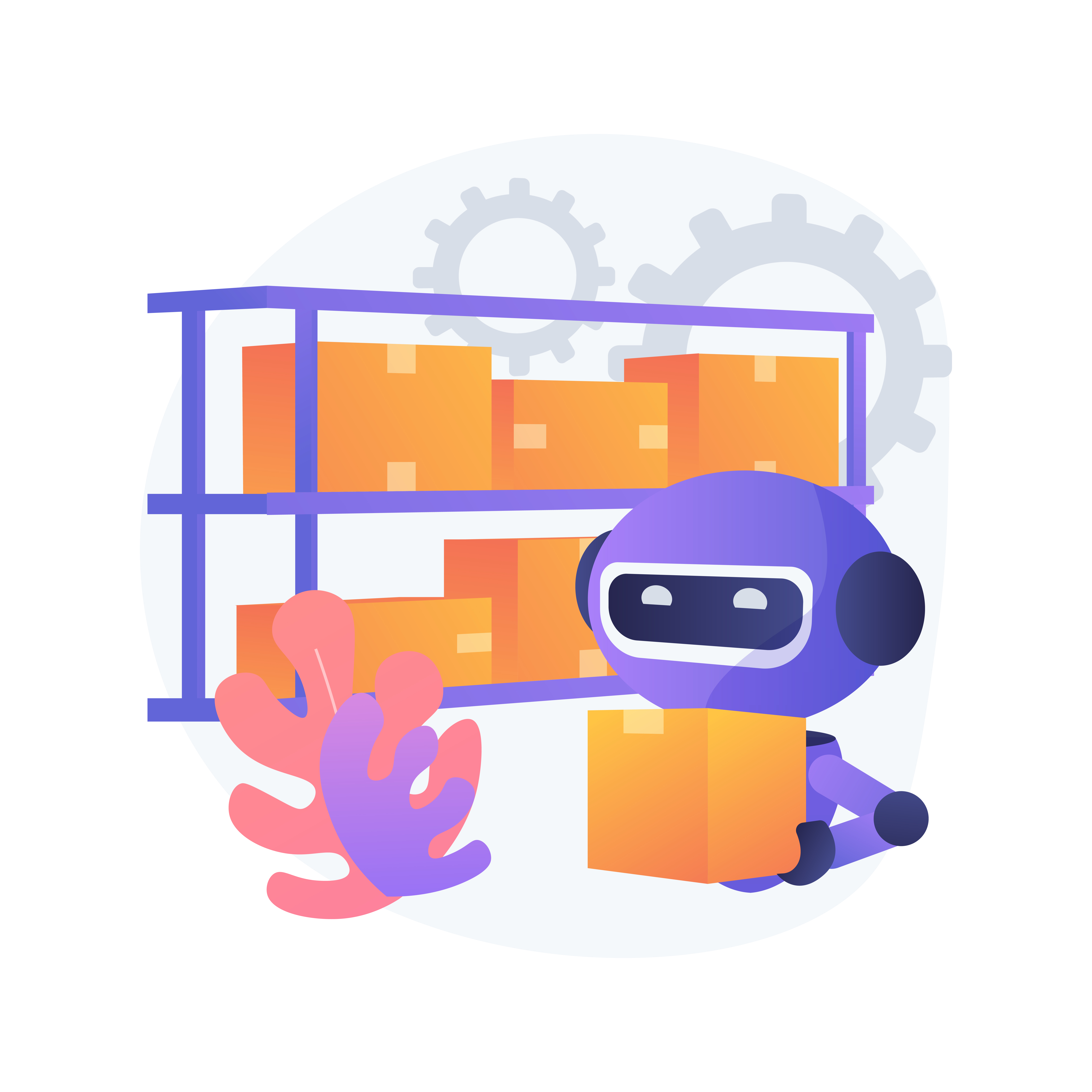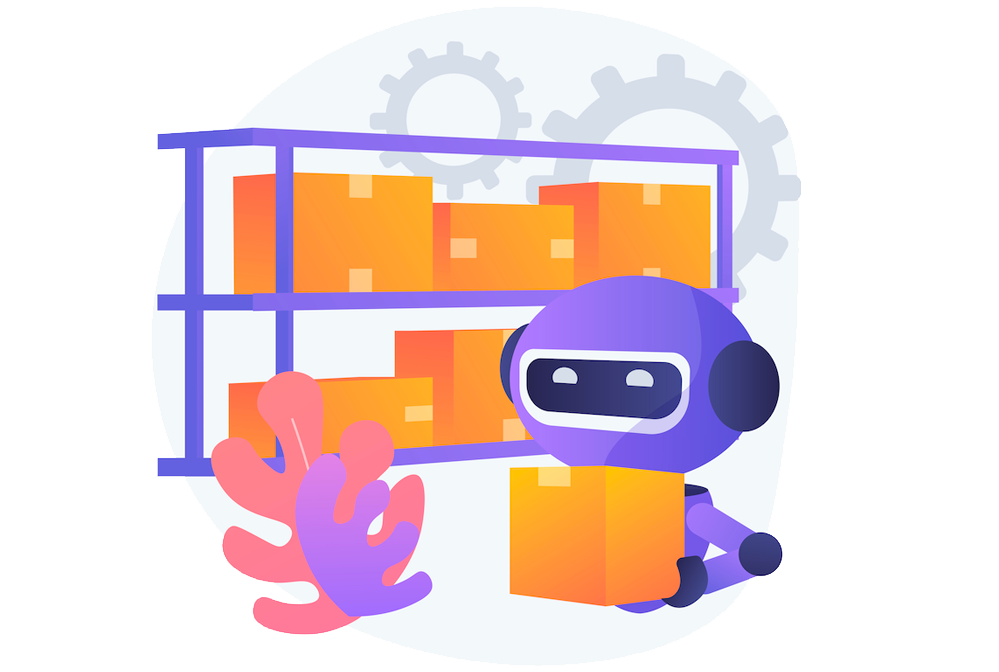Summary
- AI has grown from the buzzword of science fiction to be able to process large amounts of structured and unstructured data and help make complex decisions in real time
- The power of AI can be effectively leveraged to develop specific applications in the areas of last mile delivery, demand prediction and warehouse automation.
- This may translate into lower costs, lower pressure on resources, higher revenues and margins.
Introduction
Artificial Intelligence (AI) is creating waves by improving efficiency and reducing the time taken to
complete tasks.
It has found applications in logistics and supply chain management and is helping companies pack,
sort,
and deliver packages efficiently.
Soon, it’ll help make logistics and supply chain management a seamless process. And in this article,
we’ll discuss the benefits of employing AI in logistics to stay abreast of the trend and help you
figure
out the time and cost savings it brings for your business.

Let’s start with understanding what AI is in simple terms.
What is AI?
AI is the ability of a computer program to mimic human thinking and learning to make decisions based
on a
set of data points. The programs learn from data sets and make better decisions as they collect more
data.
They’re typically used to replace mundane, repetitive, and time-consuming tasks requiring human
intelligence to help companies focus on tasks that move their business needle.
Now that we’ve understood what AI does, let's discover what it can do for the logistics industry.
Applications of AI in Logistics
Supply Chains are complex networks. Moving people and goods through a supply chain involves a lot of
interrelated activities that must adjust to the on-ground realities and disruptions. Finely tuned
and
balanced global supply chains can be disrupted by any set of changes ranging from climate change to
human error in processing data.
See Also: Labor Constraints push Amazon to redirect inventory
AI can reduce human error, no doubt. It can also work tirelessly round the clock and do activities
like
monitoring metrics and learning continuously from data points. Because of these abilities, it has
found
varied applications in the logistics industry. Here are a few of them.
Last-Mile Delivery
Consider the following last mile problem:
Consumers today expect same-day deliveries, as per their availability, and they aren’t willing
to pay
too much for it. Though this problem seems simple on the outside, there’s plenty to do from a
retailer/logistics partner/D2C Brand point of view.
Operations managers must optimise routes, improve picking and packing processes, optimize inventory
and
utilise resources efficiently to improve consumer satisfaction, reduce delays and avoid delivery
failure.
However, managers need to work with plenty of data and manage it to deliver the personalised
experience
consumers expect and provide an ETA. For that they have to work with a ton of data.logi
AI can trudge through gigabytes of structured and unstructured data that these companies generate to
make business decisions and provide enhanced logistics excellence.
This way, logistics companies can achieve greater operational efficiency than before and boost both
consumer satisfaction and revenue.
Demand Prediction
We’ve already seen that logistics companies deal with tonnes of data but without AI they lack the
resources and bandwidth to help them acquire insights that help with decision making.
But with the help of AI-based predictive analytics tools, logistics companies can accurately
anticipate
product supply and demand even under unpredictable situations.
These tools work by feeding large amounts of data into a demand forecasting model and help companies
understand the level of extra capacity they need to meet the extra demand.
While medium/long-term demand forecasting helps companies plan the purchase of assets like trucks
and
ships, short-term forecasting improves operational planning and boosts the bottom line.
Here’s what short-term demand forecasting does for a company:
- Reduces costs by optimising the supply chain process. For instance, AI-based software will help companies save costs by optimising resources like trucks and ensuring they’re not empty or half-full.
- Helps improve employee efficiency. Logistics planners can focus on operations instead of calculating the location of the assets and checking whether they’re fully utilised or not, thus improving employee efficiency.
- Reposition fleets optimally. AI will help you reposition your fleets in a cost-efficient manner.
Warehouse Automation
Warehouse management is a key part of the supply chain process. And most warehouse management
operations
are carried out traditionally.
However, the manual process is time-consuming and isn’t very efficient. That’s why you need an
AI-based
solution to automate everything from procurement to delivery.
Here’s how AI helps with warehouse management:
- Increases productivity in the warehouse. AI robots can digitally scan item tags to maintain an accurate inventory. They can also find the shortest possible routes between objects while not bumping into each other and help streamline pick-and-pack processes.
- Accuracy and precision. AI can drastically reduce human errors and accurately place and retrieve items whenever required.
- Safety. AI is beneficial in improving safety at the warehouse as it can take over high-risk tasks that humans can’t otherwise perform.
Thus, businesses should start looking at AI-based solutions to make their warehouses smarter and improve the efficiency of the management process.
Wrapping Up
Technologies based on Artificial Intelligence (AI) are becoming omnipresent. AI has found applications in the Logistics and Supply Chain industry as it can learn from data sets and make informed decisions through mathematical models. Here are 3 major applications of AI in logistics
- Last-mile delivery: Optimising routes and resources to provide same-day delivery.
- Demand prediction: Anticipating future demand and staying ahead with appropriate planning.
- Warehouse automation: Completing risky tasks and accurately placing and retrieving objects in the warehouse.
If you found this article useful, share it with your circle. And if you’re looking for a smart delivery management software to simplify end-to-end delivery operations, check out Logibee.



